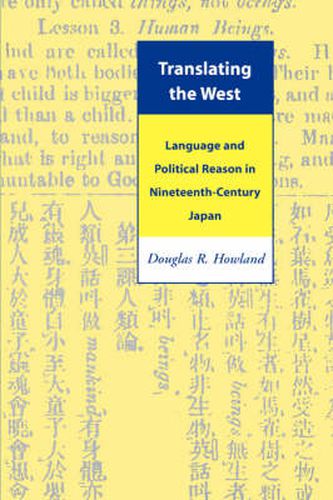Readings Newsletter
Become a Readings Member to make your shopping experience even easier.
Sign in or sign up for free!
You’re not far away from qualifying for FREE standard shipping within Australia
You’ve qualified for FREE standard shipping within Australia
The cart is loading…






In this rich and absorbing analysis of the transformation of political thought in nineteenth-century Japan, Douglas Howland examines the transmission to Japan of key concepts–liberty, rights, sovereignty, and society–from Western Europe and the United States. Because Western political concepts did not translate well into their language, Japanese had to invent terminology to engage Western political thought. This work of westernization served to structure historical agency as Japanese leaders undertook the creation of a modern state.
Where scholars have previously treated the introduction of Western political thought to Japan as a simple migration of ideas from one culture to another, Howland undertakes an unprecedented integration of the history of political concepts and the semiotics of translation techniques. He demonstrates that Japanese efforts to translate the West must be understood as problems both of language and action–as the creation and circulation of new concepts and the usage of these new concepts in debates about the programs and policies to be implemented in a westernizing Japan.
Translating the West will interest scholars of East Asian studies and translation studies and historians of political thought, liberalism, and modernity.
$9.00 standard shipping within Australia
FREE standard shipping within Australia for orders over $100.00
Express & International shipping calculated at checkout
In this rich and absorbing analysis of the transformation of political thought in nineteenth-century Japan, Douglas Howland examines the transmission to Japan of key concepts–liberty, rights, sovereignty, and society–from Western Europe and the United States. Because Western political concepts did not translate well into their language, Japanese had to invent terminology to engage Western political thought. This work of westernization served to structure historical agency as Japanese leaders undertook the creation of a modern state.
Where scholars have previously treated the introduction of Western political thought to Japan as a simple migration of ideas from one culture to another, Howland undertakes an unprecedented integration of the history of political concepts and the semiotics of translation techniques. He demonstrates that Japanese efforts to translate the West must be understood as problems both of language and action–as the creation and circulation of new concepts and the usage of these new concepts in debates about the programs and policies to be implemented in a westernizing Japan.
Translating the West will interest scholars of East Asian studies and translation studies and historians of political thought, liberalism, and modernity.